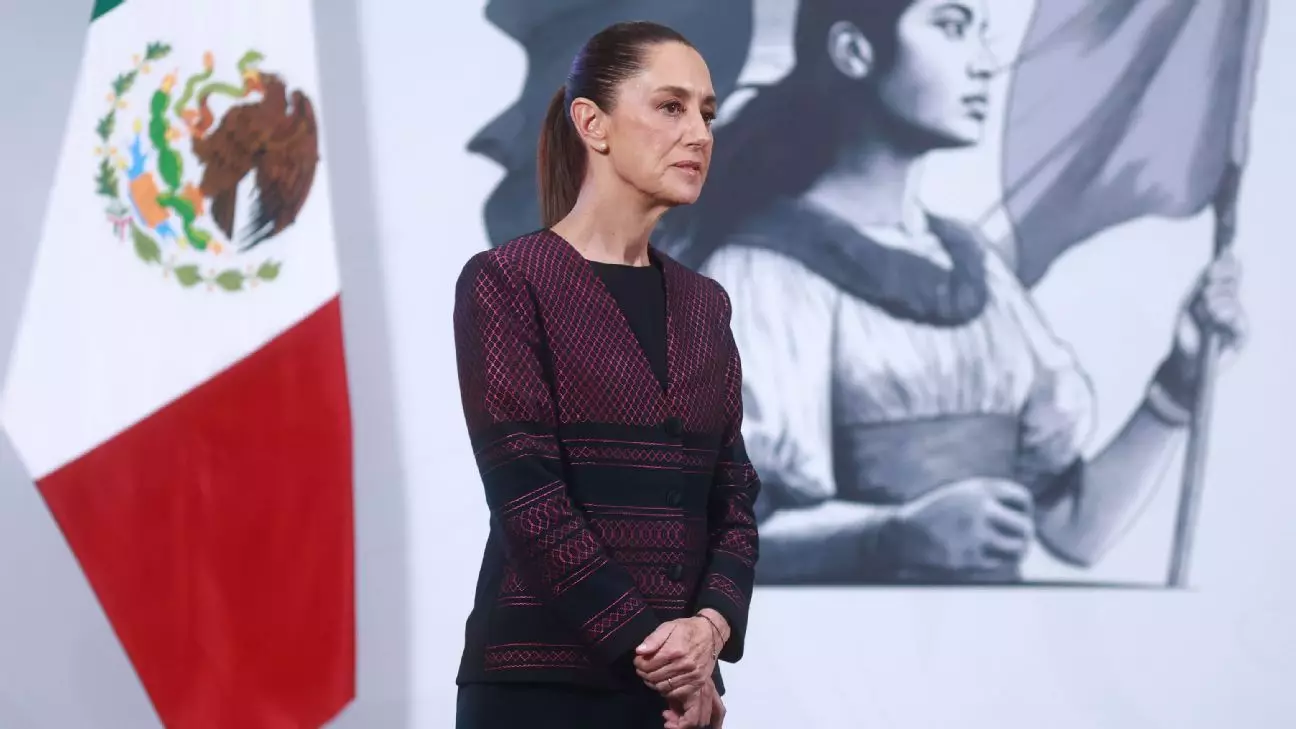Recent events surrounding the Gold Cup soccer match between Mexico and the Dominican Republic in Los Angeles have unveiled a troubling interaction of sports, immigration enforcement, and national identity. Claudia Sheinbaum, the Mexican President, has passionately urged U.S. authorities to refrain from targeting undocumented immigrants during this highly anticipated event. Such calls for restraint seem not just reasonable, but necessary in a climate where the lines between fanfare and fear are increasingly blurred due to aggressive immigration policies reminiscent of the previous Trump administration.
It’s alarming that U.S. Customs and Border Protection (CBP) felt compelled to issue a boastful reminder of their presence at sporting events, which has turned a celebration into potential peril for many. The CBP’s prior social media message about being “suited and booted” at the FIFA Club World Cup matches underscores a disturbing shift where families attending a soccer match might find themselves in a situation filled with anxiety rather than enjoyment. One of the most sacred aspects of a sporting event is the camaraderie it fosters; this should not be overshadowed by the fear of being targeted by immigration enforcement.
Mexican Nationals: Victims of Political Posturing
What is especially disheartening is how Mexican nationals are continuously portrayed as threats rather than the hardworking individuals contributing to society. Sheinbaum’s assertion that these citizens do not seek to incite violence should be a wake-up call. Consistently, these narratives paint a skewed picture that ignores the multifaceted realities of immigrants, ultimately serving only those who wish to exploit these divisions for political gain. The political theater surrounding Border Patrol’s announcement not only detracts from the sportsmanship expected at the Gold Cup but also tragically ignores the human stories behind every ticket sold.
The reality is that many who will crowd into SoFi Stadium this weekend are not just fans— they are individuals balancing their love for their national team with the stark fear of legal repercussions that could affect their lives. For Sheinbaum to remind fans of the protocols established by Mexican consulates in the U.S. underscores a disheartening reality; it’s almost as if attending a soccer match has morphed into a risky venture rather than a festive gathering.
Society’s Reaction: A Call for Solidarity
The viral images of demonstrators holding Mexican flags should not be dismissed as “potential provocations” as Sheinbaum suggested. Instead, they should be seen as powerful symbols of solidarity in the face of oppressive tactics that seek to vilify a community. These sentiments of national pride and resilience must not merely be seen as provocations; they serve as reminders of the rich, contributing cultural fabric that immigrants have woven into American society.
While announcing that Mexico will continue its Gold Cup journey through various U.S. cities, one has to wonder whether these matches are merely sporting events or have now transformed into symbolic battlegrounds in a larger socio-political fight. As we navigate this convoluted landscape, it is crucial that citizens of both countries advocate for compassion and understanding rather than division and fear. The beautiful game should unite people, not serve as a backdrop for intimidation and discrimination.


Leave a Reply